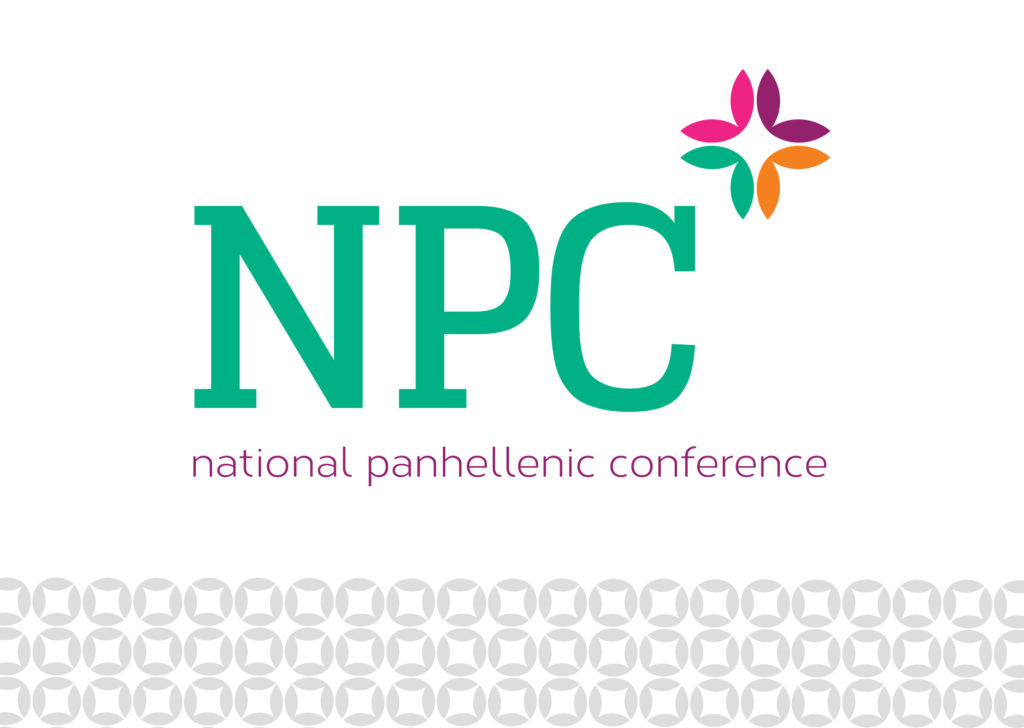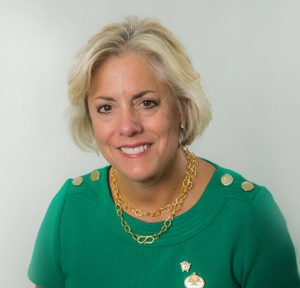Many Initiatives, One Goal Of Advancing Sorority

by Carole Jurenko Jones, Alpha Delta (U of Alabama), 2019-2021 NPC Chairman

In the November Chairman’s Message, I reflected on the year and the things I am most grateful for as we continue to advance the sorority experience together. This December message finds me reflecting on the work of the NPC Board of Directors during the last 18 months, the initiatives we’re working on and how all of those efforts fit together to set the strategic direction for the Conference and create our vision for the future of Panhellenic sorority life.
Collectively, all of us – NPC staff and volunteers, member organization staff and volunteers, and College and Alumnae Panhellenic Associations – have worked tirelessly to meet the challenges of 2020 and to help prepare for the future of our organizations.
About Project 2029
In fall 2019, the board, in setting our goals for our term as directors, stated that our most important future-looking work was Project 2029, a focused effort to imagine the sorority experience in the year 2029. This project reflected our strategic goals and we began digging into the following questions:
- How do we best protect the sorority experience in environments that can be skeptical of our mission and sometimes hostile to our existence?
- How do we protect student rights and the right of free association?
- How do we evolve and embrace questions of diversity, inclusion and gender identity that reflect our values and respond to the expectations from new members and prospective members?
- How do we continue confronting challenges such as hazing, sexual assault and high-risk drinking?
- How do we define feminism and women’s empowerment for our organization and our women at a time when equality and gender equity is front and center in our national and international debate?
From fall 2019 until early 2020, the board engaged in strategic conversations, gathered feedback from our constituents and participated in educational webinars regarding trending topics – all with the aim of answering the questions raised by our work on Project 2029.
The Pandemic Changes – and Accelerates – Our Work
When the pandemic hit in early 2020, the board’s focus had to quickly shift away from conversations about the future of sorority and Project 2029 to how to protect sorority members and the sorority experience in the moment of a very real (and ongoing) crisis.
As we live through this pandemic, I believe there is a silver lining as it has helped us make change faster than anyone ever expected. The NPC Disruption to Panhellenic Operations Task Force and subsequently the Recruitment Contingencies Task Force led the way in ensuring Panhellenics could operate during the pandemic and prepare to welcome new members this fall.
If anything, the pandemic offered us an opportunity to test changes to the ways in which we recruit and to begin eliminating barriers to membership, including some financial barriers. Panhellenics successfully shifted to hybrid or fully virtual recruitments and began eliminating barriers to the recruitment process. Now, as Panhellenics prepare to welcome new members this spring, the NPC Recruitment Committee is gathering the lessons learned from the fall so they can make further recommendations regarding the future of Panhellenic recruitment.
Conversations Regarding Racism and Injustice
It is not only the pandemic that has influenced the board’s work and the work of the Conference and its organizations. While the board had strategic discussions regarding racism and inequity within Panhellenic organizations prior to the pandemic, the national conversation regarding racism and injustice – a conversation that is now ongoing and multinational – has helped bring greater clarity to these topics and set us on a path to create a more diverse, inclusive, equitable and accessible Panhellenic sorority experience.
To that end, in June 2020, the board outlined three frameworks we were committed to as our contribution to the discussion about race and racial injustice:
- Our organizations don’t reflect the diversity that our Panhellenic communities hope to achieve. As a community, we don’t make ourselves broadly attractive to women of color and we have too often fallen short in supporting our Black and Brown sisters.
- We believe that we must consider – and change – the systems and norms within the Panhellenic community that have historically benefited and centered the experiences of white women and women of privilege, more generally.
- As a Panhellenic community, we have an obligation and responsibility to empower our members and volunteers and to openly discuss race and racial injustice.
The board then appointed the NPC Access and Equity Advisory Committee to provide recommendations and guidance to us on increasing access to the sorority experience and equity across NPC policies and procedures. The Access and Equity Advisory Committee’s work will continue for several months, and it is a critical component of helping us answer questions related Project 2029.
Yet, we know “The road to diversity, equity and inclusion is a journey not a destination.” I used this quote from Syreeta Greene, MSW, Ed.D., director of the Office of Equity, Inclusion and Multicultural Affairs, Midwestern State University, in my August Chairman’s Message. I am still feeling the impact of her statement as we work to make our Panhellenic communities more broadly attractive to women of marginalized identities and create lasting change in the way we operate, recruit and support collegiate sorority women. (For more on NPC’s commitment to diversity, equity and inclusion, please visit our website here.)
Relevancy Research
Also prior to the pandemic, NPC staff and volunteers had been working on projects in the 2019-22 NPC Strategic Plan, including updating the message framework regarding how we communicate to our publics and constituencies about the sorority experience. That work led to the summer’s relevancy research, managed by VOX Global, regarding the relevancy of women’s-only organizations and sororities in the eyes of rising undergraduate women and their caregivers. While the NPC marketing team is using the research results to inform their near-term work, the board also has outlined three loud messages from that research of which we believe NPC can play a role in changing perceptions about and removing barriers to the sorority experience:
- Recruitment and perception of the sorority experience: The need to make aggressive and significant changes to the way we offer membership. Noted as the most immediate critical goal.
- Cost: The cost of membership has risen greatly during the past few years and has created a number of barriers to entry into our sisterhoods.
- Safety: The perception of PNMs and caregivers is that ours is not a safe community. Whether thinking of activities within a chapter such as possible “mean girls” behavior or mental health challenges, or the larger community’s challenges with social risk, we need to change perceptions.
All of these loud messages tie back to the questions we must answer to advance Project 2029, and they give us concrete focus areas for future messaging and initiatives.
Tying It Together
While sometimes it is difficult to see how all of these seemingly independent projects go together, these initiatives all fit into the larger whole of visioning the sorority experience in 2029. In totality, these projects work to address the questions, frameworks and loud messages outlined above and crucial to our long-term success. The work the board, our volunteers, staff and member organizations are undertaking will ensure our organizations are places where women from all walks of life feel they are welcomed, understood and heard now, in the year 2029 and beyond.

